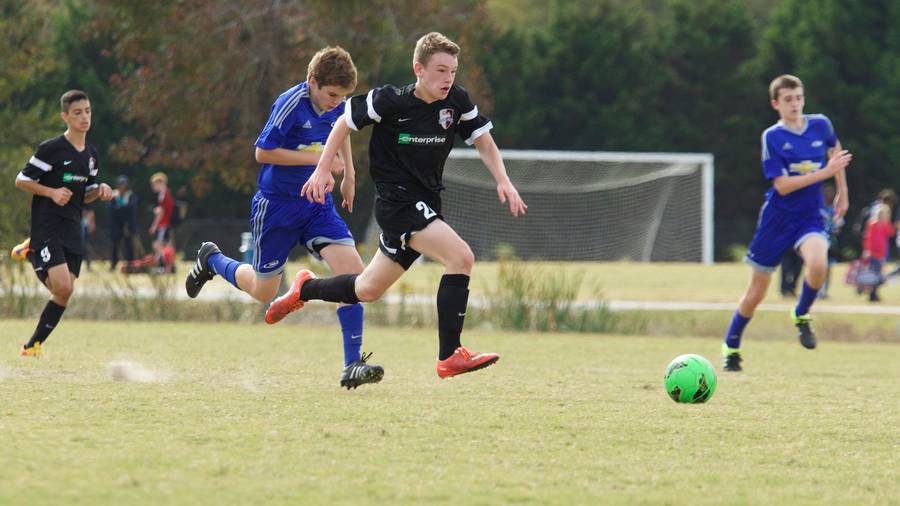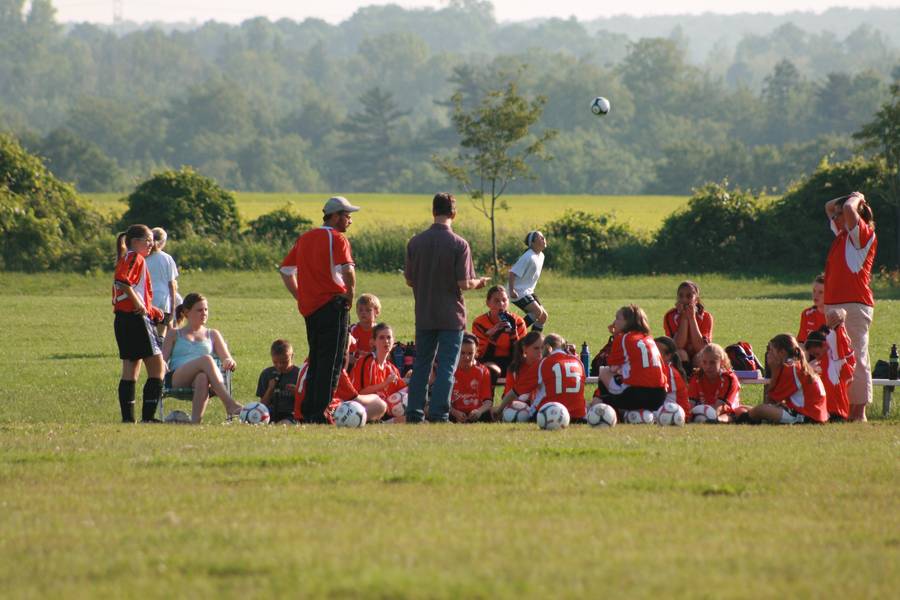
One of the most challenging aspects of coaching is often dealing with the pressure of being responsible for developing young football players.
With all the different stakeholders involved – players, parents, club officials and administrators etc - all of whom place different expectations upon you, it can be very easy to get bogged down. Trying to come to terms and cope with the different personalities involved can also be slightly overwhelming at times.
As is well documented in junior football, the intense expectations and forensic scrutiny placed on you by some parents in particular can make your job seem impossible at times. Often you find yourself placating disgruntled parents or players who are only too quick to let you know where they think you are going wrong.
It is essential to not let other people dictate to you what qualifies as success for your team or for you as a coach. You should come up with your own definition of what this is. Every individual has their own opinion and if you try to listen to them all it will be counterproductive.
For instance, given the starting point of your players you might consider success to be the amount of improvement they are able to make during a season (there’s an argument that this should actually be the only true measure at any time, irrespective of different starting points and contexts!)
One of the most important things you can do is to stick to what you believe is important in the leadership that you show. A willingness to bend to the will of others and if you’re forever making compromises on the vision you set out for your team, often means you end up travelling a short distance down lots of different roads and partially completing lots of goals.
Form your own plans and stick to them because ultimately it is your beliefs that are important. You should allow your own personality and character to guide you as a soccer coach and to shape your own individual values and beliefs.
There are a couple of things that you can do that will help to enable some of the other stakeholders to understand your beliefs and get on board with them as early as possible.
For instance, you can hold a meeting in pre-season with both players and parents offering as much detail as possible about your individual values, expectations and beliefs. You can also introduce the different procedures you will rely upon throughout the course of the season to help deliver them.
You can even explain the standards you expect from others and the measures you will take when these standards are not met. The better these are communicated from the start, the better the buy in will be from others.
Absolutely the best way for you to lead your team with authority is to act as a role model at all times and this is easier to achieve when it is done with your authentic character rather than trying to put on a show.
Of course, it is then important that you stick to your beliefs with your own actions. It is no good talking about respect at your pre-season meeting and then barking abuse in the direction of the referee during games in the season.
Any mismatch between your words and your actions will be seized upon by your players and parents. It will gradually erode the respect you command with them.
To secure absolute integrity as a leader you must act in the way you are expecting others to and to align this with your beliefs.
It is also important that you create the environment in which your individual beliefs and expectations can be met. For instance, if you value quick tempo play and high energy football, then it is only right that you ask your players to try to deliver this.
However, you need to ensure that you are providing them with training sessions and drills that are appropriate for them to execute this to the right level. Equally it is important that your own style of coaching is married to the beliefs you are trying to convey. If you are wanting good habits and positive body language to be demonstrated by your players, then you best demonstrate them yourself.
If you value self-sacrifice for the greater good of the team and team spirit as a coach, it is important that your coaching aligns with this. When speaking to the team your manner needs to be positive and your language should not draw attention to the influence of any one individual in particular but instead talk about the team as a whole.
Your communication needs to emphasise the team ethos and does not shine the spotlight on one individual, good or bad.
If you can set the standards and consistently encourage the right mentality and attitude in every contact session with your players, then you will be truly together as a team and you stand a much greater chance of delivering on your vision.
Another area that greatly undermines your team spirit and ethos is when individuals in your squad believe that they are not being treated fairly by you as a coach.
The single greatest way for this to surface is around individual playing time and one of the most difficult things to balance as a coach can be making your team competitive and giving each player equal playing opportunity.
Whilst I absolutely subscribe to the idea at Junior levels that the results are not the defining factor and that it is about playing and growing and enjoying the game, I do recognise the fact that it is much easier for your players to enjoy themselves when they experience winning.
I believe it is important to include everybody in your squad and the idea of having young players turning up consistently on a weekly basis to stand on the touchline, not be involved and watch their teammates for the entire game sits very uncomfortably.
As mentioned, I equally recognise the importance of trying to remain as competitive as possible for each game. This is where a delicate balancing act comes into play from the coach, but again, if you have set out your boundaries beforehand with all the different stakeholders then this is much easier to achieve.
Ultimately the message is quite simple; the more you can put in up front, the more boundaries you can define and the more information you can give, the easier your job will become over time and those responsibilities that were weighing heavily upon you will melt away.


















